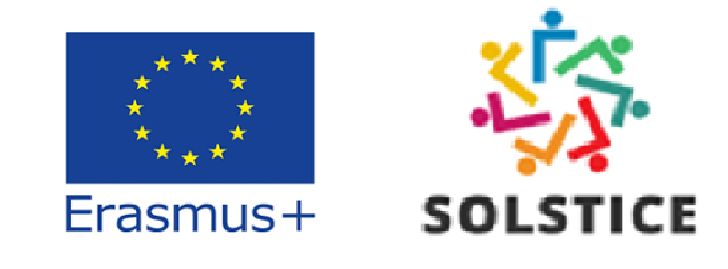
The Why
Employee conflicts are expected to reach a record high due to return-to-work policies and resistance to new workplace initiatives. These conflicts negatively impact performance at all levels.
Many academics and researchers avoid controversial subjects in the workplace and are ill-prepared for resolving conflict. Their workplaces and/or R&D project teams are to a large extent culturally diverse, so the challenge is even more amplified due to language barriers, cultural differences, stereotypes, unconscious bias, and varying attitudes toward authority and gender.
There is a lack of effective mechanisms for conflict management in academic and research institutions. Universities need to provide specialised training and coaching opportunities for managers in conflict resolution.
The Main objective
SOLSTICE equips academics and researchers in Higher Education institutions, in particular those leading or coordinating culturally diverse teams, with the self-efficacy, competencies and skills needed to understand the principles of Solution-Focused Approaches and rapidly leverage these to prevent, manage and/or resolve conflict, mitigating their impact on the teams and their performance.
Priorities
- Promoting inter-connected higher education systems
- Stimulating innovative learning and teaching practices
- Inclusion and diversity in all fields of education, training
SOLSTICE strengthens the cooperation between higher education institutions in particular in the domain of research.
By enhancing the capacity of HE academics and researchers to prevent, manage and resolve conflicts, in particular those arising in an international and cross-cultural work context, such as for instance in culturally diverse research departments or transnational research projects.

The How
SOLSTICE develops an approach which integrates practises which are considerate of cultural differences and enhance shared understanding with the aim of preventing and reducing conflict or conflictual situations arising from these differences.
The learning approach of SOLSTICE is based upon a flexible learning pathway for self-learning and assessment, it combines thin-sliced, granular units integrated into an online Training with a set of practical hand-on resources which facilitate the practical application of the skills acquired. It allows the learner to access exactly the content/topics and/or practices they need at a given time and for a specific situation.
SOLSTICE develops an approach which integrates practises which are considerate of cultural differences and enhance shared understanding with the aim of preventing and reducing conflict or conflictual situations arising from these differences.
The learning approach of SOLSTICE is based upon a flexible learning pathway for self-learning and assessment, it combines thin-sliced, granular units integrated into an online Training with a set of practical hand-on resources which facilitate the practical application of the skills acquired. It allows the learner to access exactly the content/topics and/or practices they need at a given time and for a specific situation.
The characteristics of Solution Focused Approach (SFA; De Shazer, 1987; Middendorf, 2022), make it particularly suitable for managing international and culturally diverse teams. SFA is a paradigm shift, from a “problem solving” to “solution-oriented” mindset, and focuses on what is already working in actions and behaviours, puts attention on skills and abilities and provides ideas and insights on how to use them prevent, manage and resolve conflict.
This approach, which is at the foundation for the work in SOLSTICE, is highly considerate of the cultural differences among HE research teams; in fact, it highlights those differences by encouraging the sharing of ideas, opinions, and points of view and viewing them as components of both professional and personal growth. As such it not only also promotes fundamental academic values related to honesty, trust, fairness, respect, and responsibility, but also contributes to building inclusive higher education systems, creating an inclusive (academic) work environment that fosters equity and equality.
SOLSTICE adapts the SFA philosophy and approach to the area of conflict management, engaging the team members actively in improving the work climate, teamwork and performance. We refer to this as “Solution oriented conflict management strategies (SOCS)”. Its framework enables academics and researchers in HEIs to understand how to take maximum advantage of SOCS and support them to implement them horizontally across their management activities, picking the right solution, measure or approach for the right context.
This approach, which is at the foundation for the work in SOLSTICE, is highly considerate of the cultural differences among HE research teams; in fact, it highlights those differences by encouraging the sharing of ideas, opinions, and points of view and viewing them as components of both professional and personal growth. As such it not only also promotes fundamental academic values related to honesty, trust, fairness, respect, and responsibility, but also contributes to building inclusive higher education systems, creating an inclusive (academic) work environment that fosters equity and equality.
SOLSTICE adapts the SFA philosophy and approach to the area of conflict management, engaging the team members actively in improving the work climate, teamwork and performance. We refer to this as “Solution oriented conflict management strategies (SOCS)”. Its framework enables academics and researchers in HEIs to understand how to take maximum advantage of SOCS and support them to implement them horizontally across their management activities, picking the right solution, measure or approach for the right context.
It contributes to the Bologna principles by
- Reducing barriers to transnational staff and Ph.D. student mobilityReducing the potential for conflict and enhancing shared understanding among team members creates a better work climate, positive experiences in staff exchange and joint transnational research project will motivate others.
- Acknowledging and respecting the diversity...of higher education systems, institutions, and cultures is done through a wide array of measures, the shared understanding generating when applying SOCS prevents conflict..
- Prepare the YouthHEI academics and researchers are equipped with knowledge, competence and skills which not only enhances their own skills and career development, but when permeated into their teaching activity, prepare their students better for an international and more diverse labour market.
